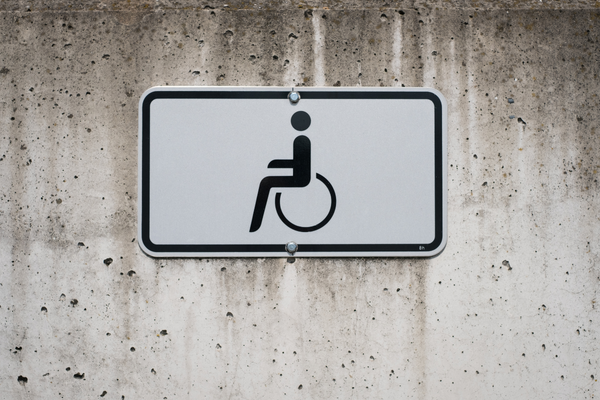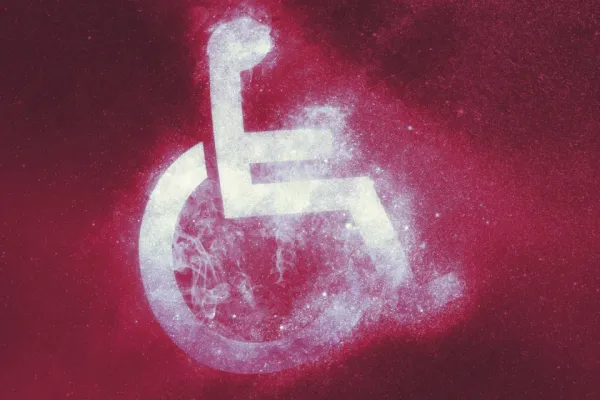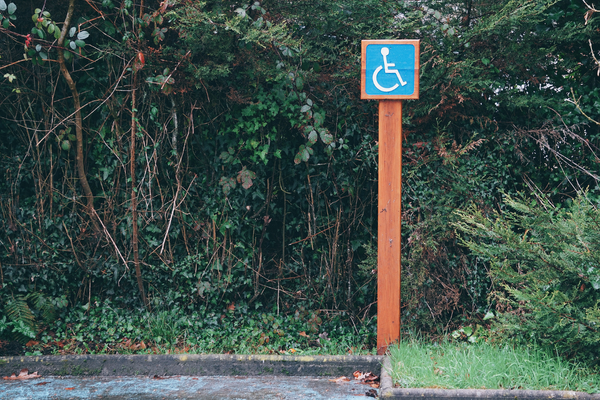6/5/25 - "Assisted dying," and thoughts on the roots of ableism

Good day!
I sense a bit of a theme in today's link choices.
Also, please remember that it's still important for US readers to contact members of Congress about Medicaid right now, especially senators. Click the link down below under "Take Action" to learn more and get started.


Disabled MP drops support for assisted dying bill over ‘broken’ social care and health services
John Pring, Disability News Service - May 22, 2025
"Darling said he had been influenced by conversations with two senior consultants at a hospice in his Torbay constituency ... He told DNS that he wanted to see “appropriate funding” for palliative care so terminally-ill people would have a “genuine choice” at the end of life between palliative care and an assisted death ... And he said that the clearer it becomes that the health and care systems are “broken”, the “more challenging it is to feel that people are able to make good decisions about how they should end their lives” if assisted dying is legalised."
The assisted dying lobby isn’t being honest with you – disabled people are at risk from this bill
Lucy Webster, The Guardian - May 14, 2025
"Here, the bill’s supporters cry out that assisted dying will be voluntary; that someone who felt they could enjoy life while terminally ill could simply choose not to die. This is, at best, a deeply naive position. Because the truth is, not everything is always above board. Society is not equal, and plenty of evidence exists that medical bias and negligence are systemic issues. It is not beyond the realm of imagination to consider that a doctor (with or without consultation with the patient; the law gives them extraordinary power) could offer up a shortened life expectancy in order to help, or indeed nudge, a patient along the road to an assisted death. Talk of how much money and resources assisted dying could save the NHS, along with the bill’s weak definition of coercion, only makes this horrific scenario more likely. But proponents say nothing about concerns that newly disabled or newly diagnosed people, who have not had time to process their shock or secure the help they need, could be at risk from actual or perceived pressure, because they don’t fit the narrative, either."
Bear with me here. I'm going to take the risk of stating what may be obvious for a lot of people reading this newsletter, and try to outline how I understand the disability angle on the "assisted dying" debate:
Pro 1: It's a matter of personal choice. People with terminal illnesses should be able to decide when and how they die. And maybe some people with really severe disabilities too. (The Personal Choice Argument).
Pro 2: People at the end of their lives, and who have very significant disabilities, cost society a lot of money. Allowing some of them to end their lives makes practical sense. (The Utilitarian Argument).
The first "Pro" argument is the one you hear most often. It's the most attractive argument. The second is the one that a lot of people probably think, but mostly know better than to state out loud, because it's cold-blooded and inhumane.
Con 1: Suicide is always wrong. Making it legal further devalues human life. (The Moral / Religious Argument).
Con 2: Making it legal and easier for terminally ill people to end their lives by choice will sooner or later put pressure on other people in dire circumstances, like very signficant disabilities, to end their lives. A person may "decide" to opt for suicide. But it may well be because they see, or are offered, no other choice. Choice will morph into pressure. (The Slippery Slope Argument).
Con 3: Arguments in favor of assisted suicide are to a great extent based on excessively negative, ableist assumptions about what living with significant disabilities is like, or could be like. It's "worse than death." People casually say they'd rather die than live with whatever disability they are looking at. This built-in pessimism inevitably shapes and warps what is supposed to be a free choice without distortions. (The Ableism Argument).
Con 4: It is doubly outrageous to make suicide legal now, when medical and social services to help ill and disabled people live decently are so flimsy, and only getting weaker. It shouldn't be easier to get help to kill yourself than it is to get support services that can enable you to live. (The Policy / Economics Argument).
Con 5: In countries with permissive "assisted dying" laws, like Canada and The Netherlands, disabled people are definitely being approved for suicide who are are not terminally ill, and are "choosing" suicide because of temporary psychological distress, finances that could be solved by better government aid, and lack of practical support services that should be more easily and appropriately provided. (The Countries Where It's Happening Argument).
I'm sure there are other arguments that I haven't covered. And for each of these there are subtleties that are only hinted at here. But this kind of outline helps me think through an issue like this.
What do you all think?
Why Do We Undervalue the Lives of Disabled People?
BROADWAYBABYTO, The Disabled Ginger - May 31, 2025
"My friend wouldn’t advocate for killing people like me. He doesn’t want us rounded up into camps and exterminated. He wouldn’t take someone’s life just because they’re disabled ... But he also doesn’t think we deserve the necessary support to survive. When I pressed him on this, and asked what his ‘solution’ would be, he admitted he felt that healthcare and social supports should be taken away from disabled people so that ‘survival of the fittest’ can do its job ... He stopped short of saying we should be murdered, and instead opted to say that he felt it was wrong that our lives were being ‘artificially extended’ with social handouts. That we weren’t meant to survive, and if benefits were stripped away most of us would die a ‘natural’ death."
This is a fascinating account of what must have been a difficult conversation between a disabled person and a friend who literally devalues disabled people. It touches on assisted dying, specifically in Canada, as well as the sometime deceptive logic of cash benefit programs for disabled people, and how pervasive and common beliefs that can be fairly labeled "eugenics" really are. It's all worth reading.



Disability Thinking Weekday is a Monday-Friday newsletter with links and commentary on disability-related articles and other content. Please like, share, comment, and subscribe — for free, or with a paid subscription. A free subscription brings a newsletter to your email each weekday, and gives you access to Comments. Benefits of paid subscription also include:
- A monthly recap with links to all of the previous month's shared articles, organized by topic.
- Listing as a supporter, and a link to your website if you have one.
- You can recommend one disability-related article for me to share per month in a weekday post.
To to subscribe, upgrade to paid, or make a one-time donation, click one of the buttons below:
I am so grateful for your help and engagement, in whichever forms you choose!



